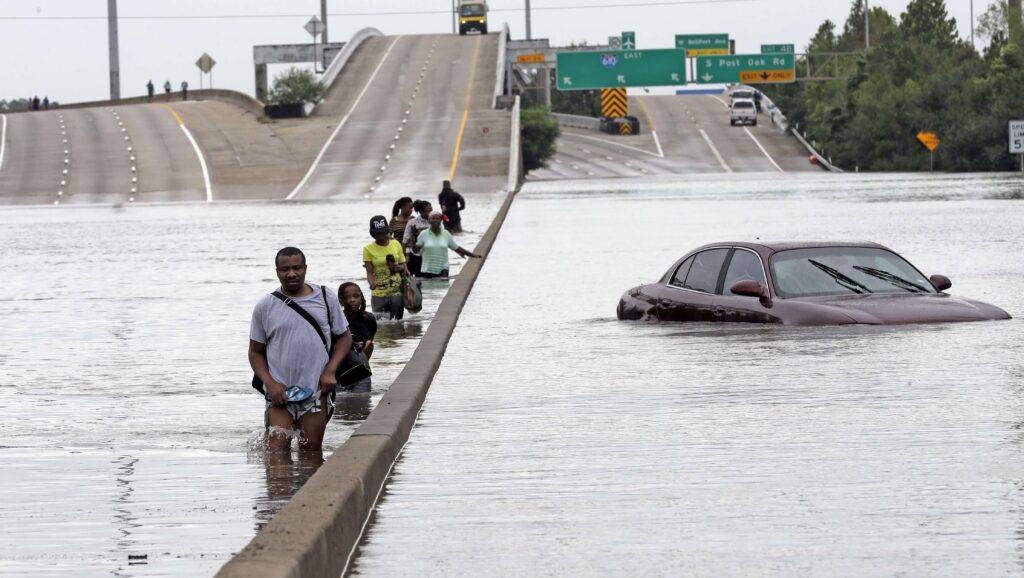by The Cowl Editor on August 31, 2017
Opinion

Hurricane Preparedness: Are We Doing Enough?
Twelve years after Hurricane Katrina and we are still asking: have we done everything possible to prepare for a hurricane?
With increasing levels of technology and improved hurricane tracking, we have become more aware of what to expect from these high-intensity storms. And with this awareness, decision-making by officials as well as citizens has been improving.
During Hurricane Katrina, many people did not understand the severity of the storm and continued to stay in their homes. After battling disastrous flooding, and being trapped in their homes without electricity, many people in New Orleans explained how they would have changed their choice to stay had they known what they would endure.
With that in mind, officials have made changes regarding how to advise those who will be affected by hurricanes. For instance, when enduring Hurricane Sandy on Long Island, New York, citizens were strongly advised to evacuate the island.
And while most of us are fortunate enough to have a safe place to go during a hurricane, what happens to those without homes in the first place?
As noted by New York Times writer Julie Turkewitz, the homeless in Texas are truly afraid. One such citizen, Roy Joe Cox, explained his fear for what lies ahead, saying, “I have no place to go and it’s going to get bad, I don’t know how I’m going to live through it.”
Although he found some shelter under a freeway, that does not protect him from flooding or debris that is picked up and thrown by heavy winds. All human beings should have the right to protection, including those without homes.
-Kelsey Dass ’18
Spare Parts Sparks Thoughtful Dialogue
Walking into a freshmen-filled classroom this past Friday, I was excited, but hesitant to begin the conversation.
Having agreed to help facilitate the Common Reading discussion as part of Providence College’s New Student Orientation, I had no clue whether the freshmen would be interested in their summer reading, Spare Parts, or if they would have even read any of it.
The inspiring underdog story of four undocumented high school students entering a collegiate level robotics competition encompassed a variety of themes. From immigration and education to citizenship and opportunity, I realized this might not be an easy dialogue to foster with new college students.
But in all honesty, I was extremely surprised by both the level of maturity and the sincerity of conversation from the freshmen I spoke with. Not only were they engaged with the controversial topic of immigration the novel centers around, but they were also receptive to each other’s different views.
By the end of the discussion, we had examined and shared different perspectives, stories, and perceptions of immigration within the United States, as well as what truths we believed we had gained from the book.
After having this discussion, I was reminded of PC’s own motto: Veritas. On the College’s website, a message from Father Shanley, O.P., explains, “…the College’s deepest mission is to teach its students to love and live in truth…”
Through the discussions promoted by the Common Reading Program, it seems this contemplation of truth is alive and well within the incoming class.
-Sarah Kelley ’18